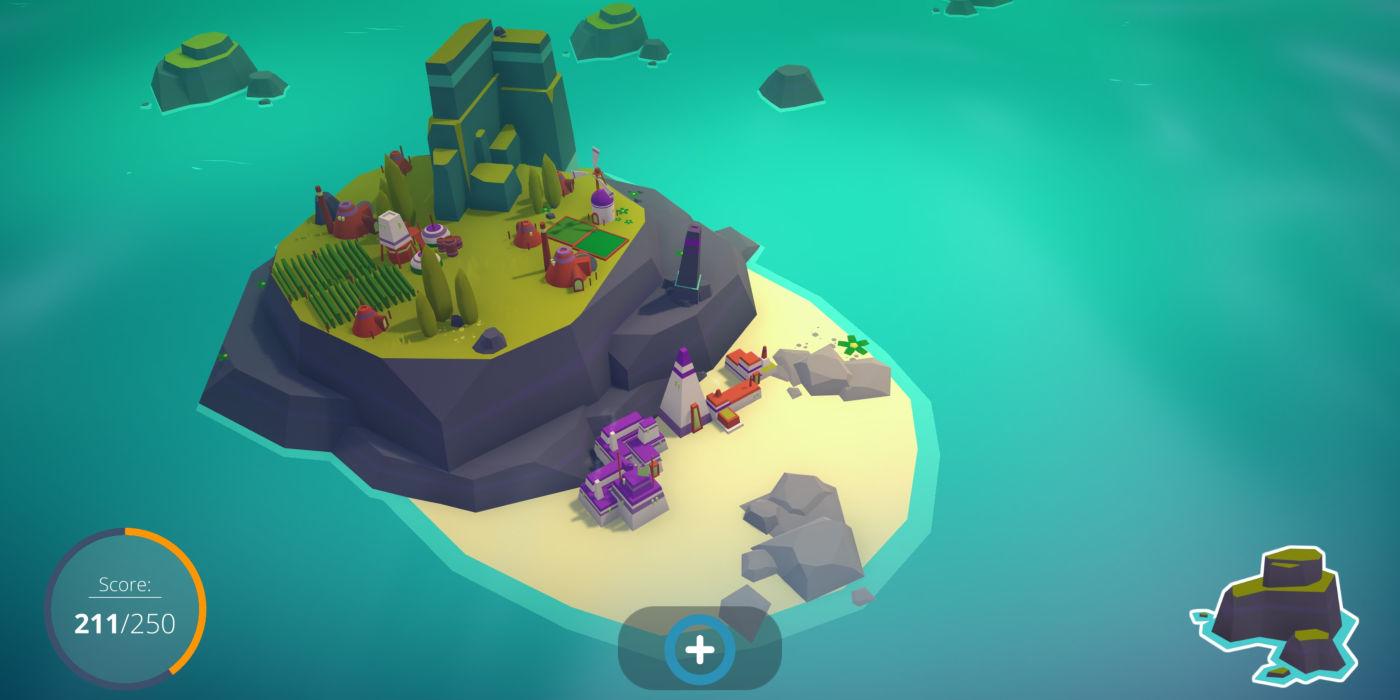
Apr
Islanders – Review
In Islanders, you build cities on relaxing islands, all in the quest for points. Did we end up building the next Singapore? Here’s what we think.
For a game called Islanders, there’s a surprising lack of actual islanders in this game. You will be building houses, mansions even, and you will be setting up an entire productivity infrastructure, but there won’t be a single soul living in your magnificent island city. It’s eerie, as if you are some alien god putting together imitations of long-forgotten human settlements. Eerie or not, it is a lot of fun, so I can see why this alien god is so into it.

Islanders is a city-building game stripped down to its absolute bare essentials. First, you get an environment to work with, which is either an island or a small archipelago. Second, you get buildings to plant into this environment. Third, you are awarded points for placing buildings in an optimal fashion.
Build up your points to a certain score, and you get to travel to a new island so that you can keep up your streak. However, if you build yourself into a corner, it’s game over. Then you can compare how well you did against other alien god city-builders on the game’s global leaderboard.
The gameplay loop involves picking one of two packs of buildings at a time, and then plonking those buildings into the game world. Each building adds to your score, with extra bonuses and penalties based on where you place it.
For example, a brewer’s benefits from being placed around hops fields and a fountain benefits from being near houses or mansions. On the other hand, a shaman’s hut should ideally be placed away from civilisation and amidst flowers, or you will incur a penalty.

Islanders offers some very simple, yet effective decision-making by asking only one of two questions at a time: “Which pack of buildings do you want to work with?” and “Where should these buildings be placed?”
The latter in particular seems like an innocuous question to ask. In a lot of games, the answer would go down to personal preference or aesthetics. In Islanders, though, things are different. You could place one lumberjack between a bunch of trees to get a lot of points, but you could also cover only half the trees and wait for another lumberjack to cover the other half instead.

For a game that looks and sounds very calming, it fuels a surprising drive towards ruthless efficiency and perfectionism. You’ll start the game out planting buildings wherever you like. You might even make cute faces every time the points fly into your stash, coin clinking sound and everything. Then, half an hour later, you’re scouring the map searching for that perfect pixel, the one that will net you more points than anywhere else.
Distinctly contrary to most citybuilding games, the game expects you to pack up and leave for the next island once you have squeezed enough points from your current island (or, well, once you have run out of building options). In Islanders, you cannot save your creations or marvel at the efficient city life that you have delivered to your island’s invisible residents.
Islanders is all about planning for a mildly unpredictable future, so building on impulse is an inefficient way to go about things. However, the game is so easygoing that you are never judged for your playstyle. You could take your time to build up the maximum score possible, or you could rush through chucking buildings as you please—in the end, all it will affect is a numerical score. When you’re done, you will toss your island away for the next one anyway.
Sometimes, Islanders’ easygoing nature manifests in stranger ways. The game’s simplistic reliance on spherical peripheries means that elevation, water bodies, and other obstacles are completely ignored. You can build farms on one island, and then a mill on another island, and it’s all just as efficient as if you had built both on the same island. Roads and boats do not exist, after all. It adds to the ghostlike eeriness of the game.

Islanders’ design feels so utilitarian that there’s a lot for Grizzly Games to build on, should they decide to.
One welcome option would be to have an unlockable create-a-game mode that lets you choose the size or style of an island. As it stands, you are forced to start small in each game and then progress through a series of increasingly larger islands. Sure, it’s rewarding, but it’s also a waste of time when you just want to get to the more spacious islands.

Islanders looks like an idyllic snowglobe, but it belies gears of efficiency and competition. Its islands are fun to tinker with, before you inevitably throw them away and start over.
Developer: Grizzly Games
Country of Origin: Germany
Publisher: Grizzly Games
Release Date(s): 4 April 2019 (PC)
This review of Islanders is based on a copy provided by the publisher.
For more indie game reviews, have a look at our review archive!
